第3章 Letter III
Man is not better treated by nature in his first start than her other works are;so long as he is unable to act for himself as an independent intelligence,she acts for him.But the very fact that constitutes him a man is,that he does not remain stationary,where nature has placed him,that he can pass with his reason,retracing the steps nature had made him anticipate,that he can convert the work of necessity into one of free solution,and elevate physical necessity into a moral law.
When man is raised from his slumber in the senses,he feels that he is a man,he surveys his surroundings,and finds that he is in a state.
He was introduced into this state,by the power of circumstances,before he could freely select his own position.But as a moral being he cannot possibly rest satisfied with a political condition forced upon him by necessity,and only calculated for that condition;and it would be unfortunate if this did satisfy him.In many cases man shakes off this blind law of necessity,by his free spontaneous action,of which among many others we have an instance,in his ennobling by beauty and suppressing by moral influence the powerful impulse implanted in him by nature in the passion of love.Thus,when arrived at maturity,he recovers his childhood by an artificial process,he founds a state of nature in his ideas,not given him by any experience,but established by the necessary laws and conditions of his reason,and he attributes to this ideal condition an object,an aim,of which he was not cognisant in the actual reality of nature.He gives himself a choice of which he was not capable before,and sets to work just as if he were beginning anew,and were exchanging his original state of bondage for one of complete independence,doing this with complete insight and of his free decision.He is justified in regarding this work of political thraldom as non-existing,though a wild and arbitrary caprice may have founded its work very artfully;though it may strive to maintain it with great arrogance and encompass it with a halo of veneration.For the work of blind powers possesses no authority,before which freedom need bow,and all must be made to adapt itself to the highest end which reason has set up in his personality.It is in this wise that a people in a state of manhood is justified in exchanging a condition of thraldom for one of moral freedom.
Now the term natural condition can be applied to every political body which owes its establishment originally to forces and not to laws,and such a state contradicts the moral nature of man,because lawfulness can alone have authority over this.At the same time this natural condition is quite sufficient for the physical man,who only gives himself laws in order to get rid of brute force.Moreover,the physical man is a reality,and the moral man problematical.Therefore when the reason suppresses the natural condition,as she must if she wishes to substitute her own,she weighs the real physical man against the problematical moral man,she weighs the existence of society against a possible,though morally necessary,ideal of society.She takes from man something which he really possesses,and without which he possesses nothing,and refers him as a substitute to something that he ought to posses and might possess;and if reason had relied too exclusively on him,she might,in order to secure him a state of humanity in which he is wanting and can want without injury to his life,have robbed him even of the means of animal existence which is the first necessary condition of his being a man.Before he had opportunity to hold firm to the law with his will,reason would have withdrawn from his feet the ladder of nature.
The great point is therefore to reconcile these two considerations:
to prevent physical society from ceasing for a moment in time,while the moral society is being formed in the idea;in other words,to prevent its existence from being placed in jeopardy,for the sake of the moral dignity of man.When the mechanic has to mend a watch,he lets the wheels run out,but the living watchworks of the state have to be repaired while they act,and a wheel has to be exchanged for another during its revolutions.Accordingly props must be sought for to support society and keep it going while it is made independent of the natural condition from which it is sought to emancipate it.
This prop is not found in the natural character of man,who,being selfish and violent,directs his energies rather to the destruction than to the preservation of society.Nor is it found in his moral character,which has to be formed,which can never be worked upon or calculated on by the lawgiver,because it is free and never appears.It would seem therefore that another measure must be adopted.It would seem that the physical character of the arbitrary must be separated from moral freedom;that it is incumbent to make the former harmonise with the laws and the latter dependent on impressions;it would be expedient to remove the former still farther from matter and to bring the latter somewhat more near to it;in short to produce a third character related to both the others -the physical and the moral -paving the way to a transition from the sway of mere force to that of law,without preventing the proper development of the moral character,but serving rather as a pledge in the sensuous sphere of a morality in the unseen.